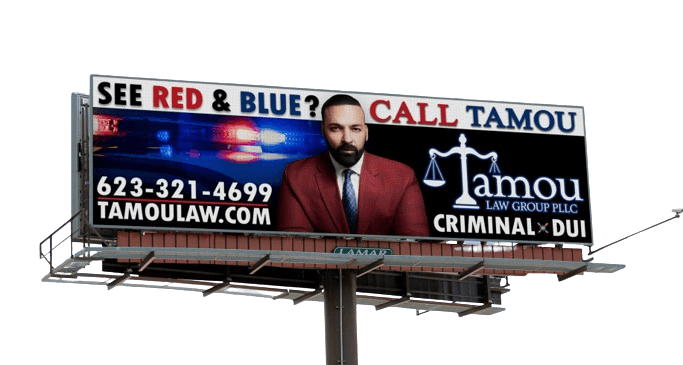7 Things to Know about ARS §13-2904: Disorderly Conduct in Arizona Defining disorderly conduct and its consequences under Arizona law.
In the intricate web of legal statutes that govern our conduct, few are as commonly invoked yet widely misunderstood as Arizona Revised Statutes (ARS) §13-2904, which deals with disorderly conduct. For individuals and entities navigating the complexities of Arizona law, comprehending the nuances of this statute is paramount. In this comprehensive exploration, we delve into the key facets of ARS §13-2904, offering invaluable insights for anyone seeking clarity and guidance on this matter. Whether you’re a resident, a legal professional, or simply someone with an interest in Arizona law, this blog aims to illuminate the crucial aspects of disorderly conduct as defined by the state.

1. Definition and Scope
At its core, ARS §13-2904 defines disorderly conduct as intentionally engaging in behavior that is likely to disturb the peace or quiet of a neighborhood, family, or person. This broad definition encompasses a range of actions, from physical altercations to disruptive noise, and underscores the statute’s emphasis on maintaining public order and decorum.
2. Acts Constituting Disorderly Conduct
The statute outlines several specific behaviors that can be classified as disorderly conduct, including:
- Engaging in fighting, violent, or seriously disruptive behavior
- Making unreasonable noise
- Using abusive or offensive language or gestures in a way likely to provoke immediate physical retaliation
- Making any protracted commotion, utterance, or display with the intent to prevent the transaction of the business of a lawful meeting, gathering, or procession
- Refusing to obey a lawful order to disperse issued to maintain public safety in dangerous proximity to a fire, hazard, or other emergency
- Recklessly handling, displaying, or discharging a deadly weapon or dangerous instrument.

3. Classification of Offenses
Disorderly conduct charges can vary in severity, typically classified as a Class 1 misdemeanor under Arizona law. However, if the disorderly conduct involves a firearm or other deadly weapon, the charges can escalate, reflecting the increased risk and potential harm associated with such actions which can lead to being charged with a felony and imprisoned under felony sentencing.
Disorderly Conduct as a Domestic Violence Offense
Disorderly Conduct can also be classified as Domestic Violence. Domestic violence generally occurs between two people who have a close relationship. This can be a spouse, child, sibling, or someone even in a romantic relationship. If you are facing disorderly conduct charges that are amplified with a Domestic Violence aggravation, you should call our Disorderly Conduct lawyers at Tamou Law Group to help formulate a solid defense.
4. Legal Consequences
Conviction for disorderly conduct under ARS §13-2904 can lead to significant legal consequences, including fines, community service, probation, and even imprisonment. The specific penalties depend on various factors, including the nature of the conduct, the presence of any aggravating circumstances, and the individual’s criminal history.

5. Defenses Against Disorderly Conduct Charges
Several defenses can be mounted against charges of disorderly conduct, ranging from challenging the sufficiency of the evidence to asserting First Amendment rights. The context of the alleged conduct, the intent of the accused, and the presence of any mitigating factors can all play crucial roles in shaping the defense strategy.
6. Impact on Your Record
A conviction for disorderly conduct can have far-reaching implications beyond the immediate legal penalties. It can affect employment opportunities, housing applications, and more, given its presence on one’s criminal record. Understanding the potential long-term impacts is crucial for anyone facing such charges.
7. Navigating the Legal Landscape with Experience
Given the complexities and nuances of ARS §13-2904, navigating disorderly conduct charges in Arizona demands experienced legal guidance. Whether you’re seeking to understand the statute’s implications, exploring potential defenses, or confronting charges, professional legal counsel is indispensable.
Engage with Tamou Law Group PLLC for Unmatched Legal Support
At Tamou Law Group PLLC, our deep understanding of Arizona law, combined with our commitment to our clients, positions us as your ideal partner in navigating the legal challenges associated with disorderly conduct. With a nuanced grasp of ARS §13-2904 and a track record of successfully defending our clients, we stand ready to offer the legal support and guidance you need.
Should you find yourself confronting charges of disorderly conduct or seeking clarity on the legal landscape in Arizona, we invite you to connect with us. For experienced legal consultation and representation, contact Tamou Law at 623-321-4699. Together, we can navigate the complexities of the law, ensuring your rights are protected and your voice heard.
For more information about Disorderly Conduct, take a look at our Best Guide to Disorderly Conduct HERE!

Tamou Law Group
Scottsdale Office
9375 E Shea Blvd #100
Scottsdale, AZ 85260
Phone: 623-321-4699



![The Top 3 Probation Violation Lawyers in Phoenix, AZ [2026]](https://tamoulawgroup.com/wp-content/uploads/2025/11/phoenix-probation-violation-lawyer-300x300.png)